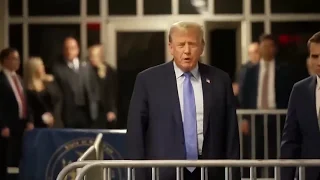n the whimsical world of “Home Alone,” young Kevin McCallister’s solo adventure to the supermarket for essentials in 1983 served as a quaint snapshot of a bygone era. Fast forward to 2023, and the nostalgia-laden grocery run becomes a potent metaphor for the escalating costs under the economic policies of the Biden administration.

According to OutKick, McCallister, portrayed by Macaulay Culkin in the beloved 1990 Christmas film, managed to snag a half gallon of milk, a half gallon of orange juice, bread, frozen mac and cheese, toilet paper, dryer sheets, a TV dinner, laundry detergent, cling wrap, and a package of army men for less than 20 bucks—a total that intriguingly matches the year of the original run, 1983.
The juxtaposition of McCallister’s 1983 grocery bill and its 2023 counterpart paints a stark picture of the impact of inflation and Bidenomics on everyday expenses. What once cost a mere $19.83 has surged to an alarming $72.28, marking an increase of almost 250 percent in just three years, as reported by Fox News.
While a portion of this surge can be attributed to the natural inflation that occurs over time, critics argue that Bidenomics, the economic policies championed by President Joe Biden, has exacerbated the situation. The rising prices of groceries serve as a tangible indicator of the economic challenges faced by American households under the current administration.
Fox News aptly notes, “Last year, the same grocery list cost $44.40, and this year, it costs a whopping $72.28 in 2023.” This sharp increase underscores the concerns of a populace grappling with the economic fallout of policies that impact their day-to-day lives.
As the grocery bill continues to climb, it raises the specter of broader implications for the political landscape. In the realm of political discourse, economic concerns have historically been a critical factor influencing voter sentiment. The correlation between rising grocery prices and citizens’ discontent is a potential harbinger of political shifts, particularly as the nation gears up for the next election.
According to a recent FOX News poll, a staggering 75% of respondents express concern about inflation and higher prices. The prevailing sentiment is that the economy is in bad shape, with two-thirds of respondents seeing no signs of a turnaround. The data also reveals that only 29% optimistically believe the worst is over for the economy—a slight improvement from 25% in 2022. However, a significant 67% of respondents remain skeptical, indicating a prevailing pessimism about the economic trajectory.
In the context of this data, the grocery bill surge symbolizes not just a numerical increase but a tangible manifestation of the economic challenges faced by Americans. The affordability of basic necessities is becoming a central focus, potentially reshaping political landscapes and influencing voter choices in the upcoming election.
As McCallister faced the challenge of being “Home Alone,” a new narrative unfolds where citizens, feeling the economic pinch, may no longer find themselves politically isolated. The surge in grocery prices serves as a potent reminder that, come the next election, the economy may well be the deciding factor, potentially reshuffling the political deck and leaving President Biden with more than just an empty house.












Discussion about this post